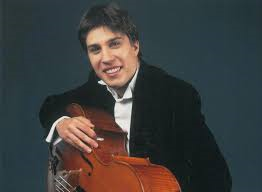30th ANNIVERSARY SEASON: FOUR NEW PRODUCTIONS
INCLUDING AN OFFENBACH PREMIERE
Garsington Opera’s 30th anniversary season will feature four new productions – the UK stage premiere of Offenbach’s Fantasio, Smetana’s The Bartered Bride, Mozart’s Don Giovanni and finally Britten’s The Turn of the Screw. The season culminates with concert performances of Monteverdi’s Vespers of 1610, celebrating the start of a partnership with The English Concert. The season runs from 29 May to 26 July.
Garsington Opera remains committed to engaging great singers from around the world as well as showcasing the best talent from the UK. They are joined by the Garsington Opera Chorus and Orchestra, and for the performances of The Bartered Bride, the Philharmonia Orchestra.
The UK stage premiere of Offenbach’s little-known opera Fantasio celebrates his bicentenary year. A beguiling tale of love and mistaken identity, it will feature Hanna Hipp, who sang Clairon in Capriccio last season, in the role of the Jester, a melancholy, moon-struck dreamer yearning after Princess Elsbeth, performed by Jennifer France, winner of the Critics Circle Emerging Talent Award 2018, the Leonard Ingrams Foundation Award 2014 and praised for her appearance as Susanna in John Cox’s legendary Le nozze di Figaro. They are joined by Huw Montague Rendall (Prince of Mantua), Timothy Robinson (Marinoni), Brian Bannatyne-Scott (King of Bavaria) and Bianca Andrew (Flamel). Three singers, formerly on the Alvarez Young Artists’ Programme, Benjamin Lewis (Sparck), Joseph Padfield (Hartmann) and Joel Williams (Facio) complete the cast. This fantastical story is performed in a lively new English translation by Jeremy Sams. The creative team of director Martin Duncan and designer Francis O’Connor return after many admired productions at Garsington Opera, and are joined by lighting designer Howard Hudson and choreographer Ewan Jones. Making his Garsington Opera debut, Justin Doyle, Artistic Director of RIAS Kammerchor, Berlin, will conduct.
The Bartered Bride, a celebration of Czech culture and identity, will be reimagined into the heart of the English countryside, and will open the season. Natalya Romaniw, last seen at Garsington as Tatyana in Eugene Onegin, sings the heroine Ma?enka who uses all her charm and cunning to marry the man she loves – Jeník, sung by American tenor Brenden Gunnell. The cast includes Joshua Bloom (Kecal) last seen as Figaro (2017), Stuart Jackson (Vašek), Peter Savidge (Krušina), Heather Shipp (Ludmila), Brian Bannatyne-Scott (Mícha), Anne-Marie Owens (Háta), and Jeffrey Lloyd-Roberts (Circus Master). Lara Marie Müller, a former Alvarez Young Artist, sings Esmeralda. Dance is at the heart of this sparkling work from the vibrant overture to the riotous and festive polka; Jac van Steen, who returns after his success with Pelléas et Mélisande (2017), will conduct the Philharmonia Orchestra. The creative team of Paul Curran (director) and Kevin Knight (designer), whose production of Death in Venice (2015) was much acclaimed, returns with Howard Hudson (lighting designer) and Darren Royston (movement director).
Mozart’s enduring masterpiece Don Giovanni will feature several role debuts including Jonathan McGovern in the title role, David Ireland (Leporello), formerly an Alvarez Young Artist, Australian soprano Sky Ingram (Donna Elvira) and Welsh tenor Trystan Ll?r Griffiths (Don Ottavio). The cast also includes two UK debuts – Brazilian soprano Camila Titinger (Donna Anna) and Canadian soprano Mireille Asselin (Zerlina). Paul Whelan (Commendatore) and former Alvarez Young Artist Thomas Faulkner (Masetto) complete the cast. Garsington Opera’s Artistic Director Douglas Boyd conducts and former Artistic Director of the Royal Shakespeare Company Michael Boyd (director) returns to direct together with Tom Piper (designer), after their success with Pelléas et Mélisande (2017) and Eugene Onegin (2016) with Malcolm Rippeth (lighting designer).
The Turn of the Screw with a libretto by Myfanwy Piper, based on the novella by Henry James, is considered to be one of Britten’s finest stage works. The gripping story of a young governess, performed by Sophie Bevan, sent to a remote country house to care for two children, also features the tenor Ed Lyon (Prologue/Quint), making his role debut. Also in the cast are Kathleen Wilkinson (Mrs Grose) and Katherine Broderick (Miss Jessel). Emerging American director Louisa Muller makes her UK debut together with two-time Olivier and Tony Award-winner Christopher Oram (designer) and Malcolm Rippeth (lighting designer). Richard Farnes, conductor of last year’s admired Falstaff, will conduct.
Celebrating the start of a new partnership, the renowned Baroque and Classical chamber orchestra The English Concert makes its Garsington debut playing on period instruments in three concert performances of Monteverdi’s Vespers of 1610. They will be joined by soloists Mary Bevan, Sophie Bevan, Benjamin Hulett, Robert Murray and James Way. Laurence Cummings returns to conduct with the Garsington Opera Chorus.
Marking the end of the 30th anniversary season, on the three concert days there will be an afternoon cricket match, tours of the Walled Garden and Green Theatre Recitals showcasing the Alvarez Young Artists, as well as the opportunity to visit the Getty Library.
OPERAFIRST AND FANTASIO
As part of an extensive Learning & Participation Programme, there will be a full performance of Fantasio by the Alvarez Young Artists for local school pupils and adults, all of whom take part in preparatory workshops to introduce them to opera and deepen their enjoyment of the performance.
WIDENING ACCESS TO GARSINGTON OPERA
Garsington Opera is passionate about widening access to a young audience and has a much sought-after GO?35 membership scheme which offers subsidised tickets, priority booking, free train transfers, pre-performance parties and half price programmes.

